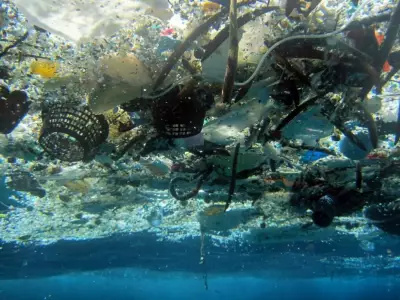
While world leaders and corporations tout ambitious climate targets, a 28-year-old Canadian offers a starkly different perspective that challenges the very feasibility of achieving net zero emissions this century.
The Reality Check From a Digital Native
Unlike policymakers who set distant deadlines, this young professional expects to witness the continued failure of climate goals throughout his entire lifetime. His viewpoint represents a growing sentiment among Generation Z Canadians who are skeptical of political promises that extend decades beyond electoral cycles.
The Generation Gap in Climate Expectations
"I don't expect we'll hit net zero this century," he states bluntly, highlighting the disconnect between governmental timelines and on-the-ground reality. This perspective isn't born from climate denial but rather from observing the practical challenges of transitioning entire economies.
The young Canadian points to several key obstacles that make net zero an elusive target:
- The enormous infrastructure requirements for renewable energy
- Continued global dependence on fossil fuels
- Economic pressures that often override environmental concerns
- Technological limitations in carbon capture and storage
- International coordination challenges
A Sober Assessment of Climate Progress
His skepticism stems from watching climate targets repeatedly missed while emissions continue to rise. Rather than accepting optimistic projections, he advocates for more realistic approaches that acknowledge the scale of the challenge.
"We need to stop pretending easy solutions exist and start having honest conversations about what's actually achievable," he suggests, emphasizing the importance of practical steps over aspirational goals.
What This Means for Canadian Climate Policy
This perspective raises crucial questions about how Canada approaches its climate commitments. If younger generations don't believe in the stated timelines, what does that mean for public support and political will?
The conversation needs to shift from whether we can achieve net zero by certain dates to how we make meaningful progress regardless of arbitrary deadlines. This might involve:
- Focusing on measurable emissions reductions rather than distant targets
- Investing in adaptation alongside mitigation strategies
- Developing more transparent tracking of climate progress
- Creating policies that survive political cycles
While climate optimism has its place, this 28-year-old's realism serves as an important counterbalance in the national conversation about Canada's environmental future.





